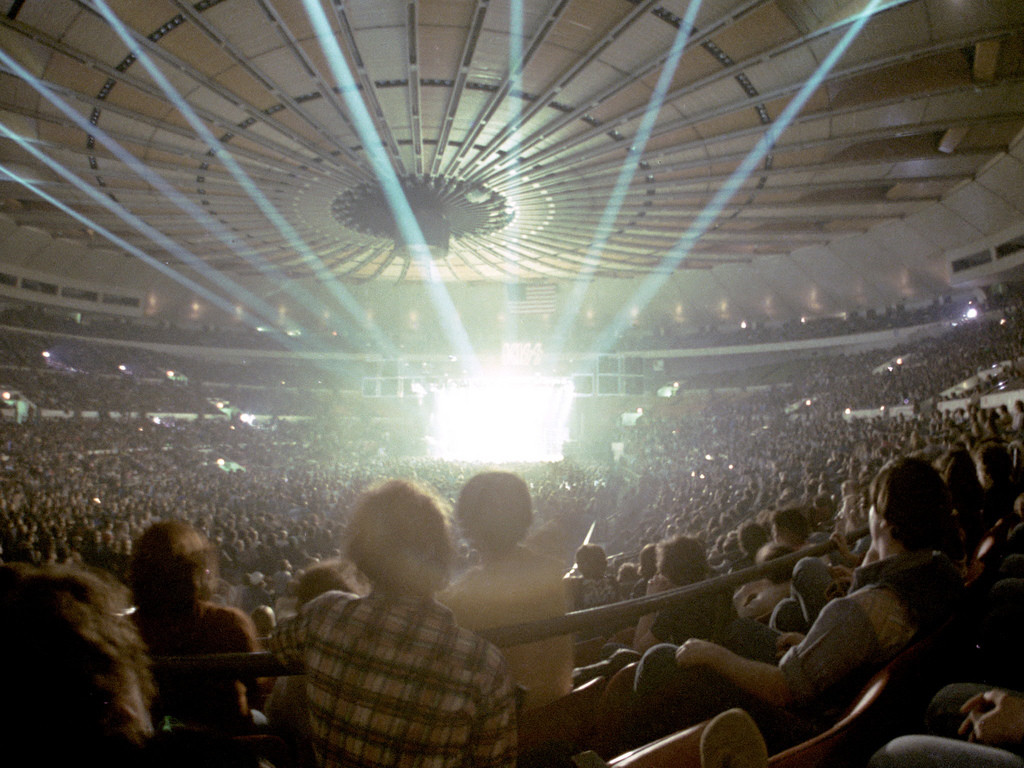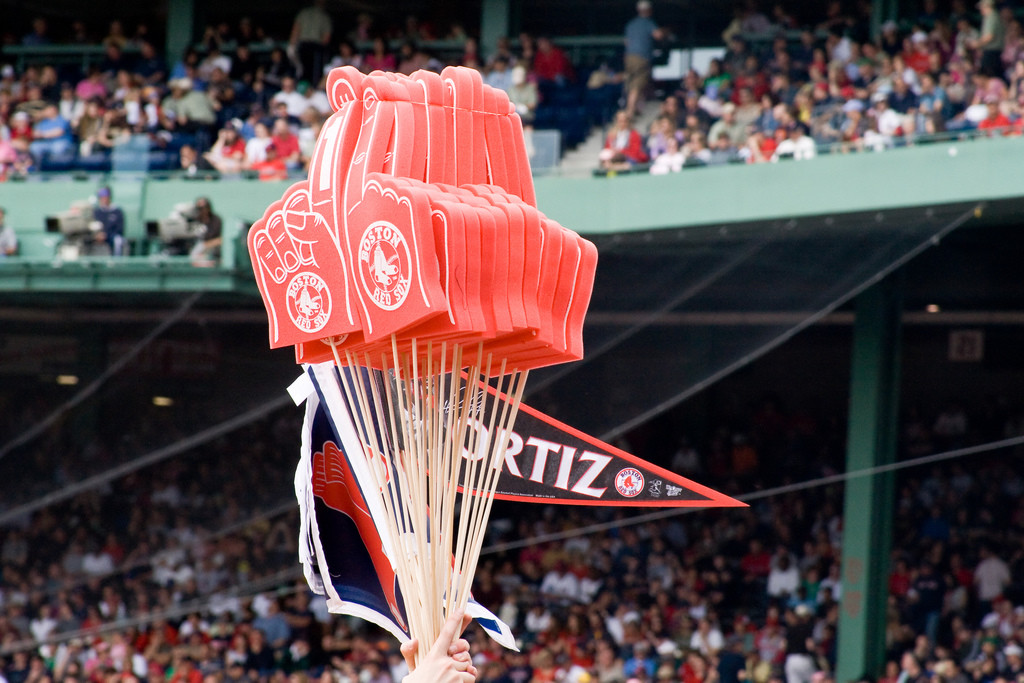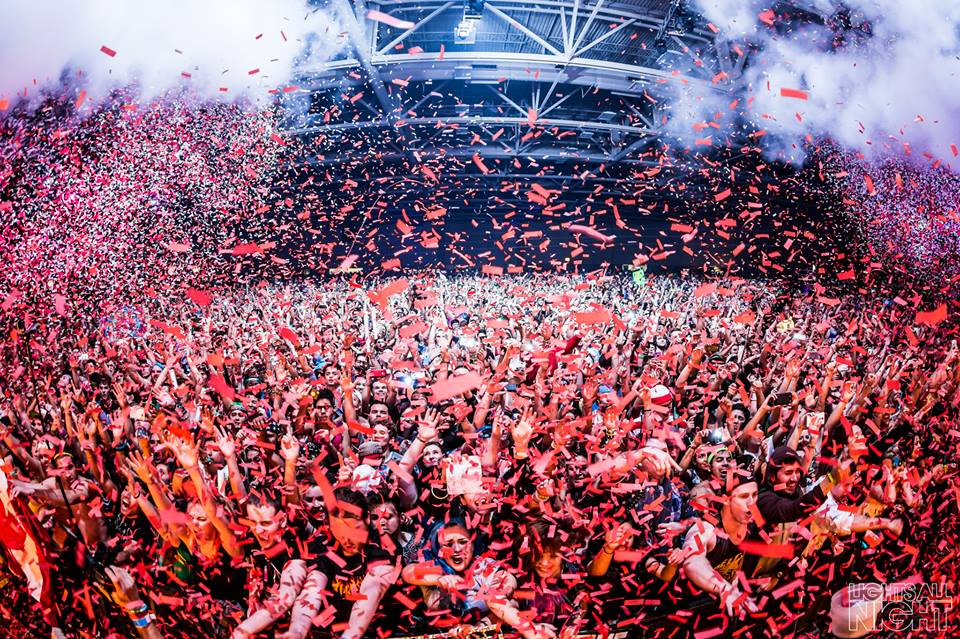1 Thing You Need to Start Doing (If You’re Not Already)
The best gift you can give your customers consists of two words: Thank you.
According to a new study from Michigan State University (MSU), satisfied customers who were acknowledged by a company president for filling out a satisfaction survey increased their patronage to the business by more than 50 percent.
“Sweetening the pot with rewards really didn’t matter,” said Clay Voorhees, MSU associate professor of marketing and lead author of the study. “These findings suggest that simple, sincere gestures are enough to drive feelings of gratitude among consumers.”
Voorhees and his colleagues focused their study on restaurant customers, tracking their visits for 12 months after a thank-you email was sent from the company president upon completion of a satisfaction survey. They found that repeat visits increased 50 percent for men and 57 percent for women.
“In the restaurant industry, where 5 percent is a big deal, 50 percent blew our minds,” Voorhees said.
Also, the size of a customer’s party increased, with an increase of 79 percent for women and 42 percent for men.
“So it wasn’t just that they came back,” he said. “They came back and brought more people with them.”
The key is not to send an immediate automated response.
“Delaying the acknowledgement is critical to ensure it comes across as being more personal and sincere,” Voorhees said.
(photo credit: MjZ Photography via photopin cc)
3 Ways to Be a Better Employee
Our drive to improve ourselves moves into high gear as we look toward a new year. And one of our first places of improvement starts at work, where we should always seek to better ourselves.
According to Kitty Boitnott, PhD, NBCT, a certified life strategies and stress management coach, there are immediate ways we can be better employees. She lists them in “5 Bad Work Habits to Break in 2015” on the website Careerealism.com. Here are three of her suggestions.
1. Be on Time
“It is much better to be known as the guy (or gal) who is always 10 minutes early for everything as opposed to being known for always being 10 minutes late for everything,” Boitnott wrote. “Being late is disrespectful of the people who are waiting for you.”
2. Avoid Office Gossip
“People may enjoy your stories for a while, but eventually they will start to wonder what you are telling other people about them given your penchant for not being able to keep a secret or hold a confidence.”
3. Stop Saying “It’s Not My Job”
“While it may be true that a particular job that you are asked to perform is outside the actual letter of your contract, by doing it anyway you demonstrate that you are a team player.”
Check out the article for the other two suggestions, and please let us know how you plan to improve your career next year in the comments section.
(photo credit: Whiskeygonebad via photopin cc)
9 Best Cities for Sports Fans
The Bleacher Report released what’s sure to be a much debated article: “The 25 Best Cities to be a Sports Fan.”
“We broke each city down into eight categories: the number of teams there, the success of those teams in the past five years, how nice the stadiums are, fan passion, how good the media is, [star power], tradition, and general fan experience,” reporter Matt King wrote.
Here are the top nine cities to get you started.
1. Boston
2. Los Angeles/Anaheim
3. Philadelphia
4. Dallas
5. St. Louis
6. New York
7. Seattle
8. Pittsburgh
9. Chicago
Please visit the Bleacher Report for the rest of the list and to see if your city made the cut.
(photo credit: andrewmalone via photopin cc)
18 Items Banned at an EDM Festival
The 5th Annual Lights All Night Festival just packed 40,000 citizens of EDM nation into the Kay Bailey Hutchison Convention Center in Dallas, Texas. Al Rojas, assistant director at the convention center, invited IAVM’s magazine team to attend the 2013 festival where we saw first-hand the attention placed on the safety and security of everyone involved in the event. Last year, Rojas commented that knowing a festival’s history is key to being a prepared host:
“The event staff looks at previous show reports and interviews with venue staff. The 2012 event was held at Dallas Fair Park and Daniel Huerta (IAVM member) and his staff were very helpful in the planning process. They also interview the event’s promoters to determine estimated attendance, arrival pattern of attendees, and the flow of attendees in the event. In addition, meetings with Dallas Police, Dallas Fire & Rescue, and event security were conducted.” (From the IAVM blog on 12/23/2013)
Knowing the unique dynamics of an event like an EDM festival is essential and results in a few customized procedures. Ingress at Lights All Night seeks to ensure that every attendee is screened consistently, and includes a few unique items that cannot be brought inside the venue. The Dallas Morning News recently shared the following list of banned items from the 2014 event:
- Pacifiers
- Vapor rub
- Large chains
- Massagers
- Spiked jewelry
- Kandi masks
- Dust masks
- Totems “of any kind”
- Stickers
- Stuffed animals
- E-cigarettes
- Open packs of cigarettes
- Open packs of gum
- Unsealed cosmetics, chapstick, and eye drops
- Over the counter meds
- Perfume
- Marker pens
- Spray paint
Read more about the 2014 Lights All Night festival.
Our Top 10 Blog Posts for 2014
It’s the last week of January (sorry, we mean December; we got way ahead of ourselves), and we, too, have the listicle bug. It’s that virus that infects all blogs and websites and forces them to post their top 10 stories of the year. So, instead of fighting it, we’re giving in and posting the blog posts that mattered to you. And by mattered, we mean the ones that received the most page views from Jan. 1 to Dec. 29, 2014.
1. International Stage Management Day is October 10
The day celebrates all the work that stage managers do.
2. 13 Traits of a Good Employee for Managers to Consider
Every Chipotle employee must have these characteristics before being hired. Does your venue have a similar list?
3. E-cigs, Venues, and Vaping Policies
The e-cig debate has created some great conversations about managing their use in venues.
4. Project Tango Plans to Make Your Venues More Awesome
Google’s new research project will help venues show off their potentials much more easily to clients.
5. Meet the World’s First LED Basketball Court
Nike built the court in a facility called the House of Mamba in Shanghai to help Kobe Bryant teach young basketball players his moves.
6. Ebola and the Venue Industry
IAVM is actively monitoring the impact of recent Ebola incidents.
7. Watch: Coca-Cola Excels at Improving the Guest Experience
Rival fans at San Siro Stadium in Milan were greeted with a unique vending experience that required them to send a bottle of Coca-Cola to an opposing fan.
8. Mystery Shopping at AT&T Stadium
Our mystery shopping mission was to roam the stadium and secretly observe the AT&T Stadium staff.
9. Are “Haters” Your Best Employees?
According to a new study published in Social Psychology, “haters” may be better employees because they spend time on fewer activities.
10. OK, Google Glass
The staff at the AT&T Performing Arts Center is incredibly excited to dive into the unknown world of wearable technology.
Thank you for reading, contributing to, and supporting the blog.
Do you want to receive a Front Row News weekly digest?
Categories
- Allied (856)
- Architecture (147)
- Arenas (744)
- Career (890)
- Convention Centers (889)
- Education (608)
- Events (1,528)
- Food & Beverage (193)
- Foundation (113)
- Guest Experience (1,482)
- Industry News (2,253)
- Leadership (1,872)
- Marketing (150)
- Membership (1,985)
- Music (212)
- Performing Arts Centers (453)
- Professional Development (398)
- Research (127)
- Safety & Security (425)
- Sports (763)
- Stadiums (607)
- Student (159)
- Technology (515)
- Ticketing (92)
- Touring (82)
- Trends (357)
- Uncategorized (771)
- Universities (216)
- Video (25)
- Young Professional (198)
Twitter Feed
- Twitter feed loading
Recent Posts
- GEODIS Park Selects Allied Universal As Its Preferred Event Services Provider
- Venuworks Appoints Marc Solis as Executive Director of the Fresno Convention and Entertainment Center
- Los Angeles Convention Center Diverts 8,000 Pounds of Wood Waste to Local Foundation Supporting Fire Victims
- Fort Worth Unveils Plans for Phase 2 of Convention Center Transformation
- San Diego Convention Center CEO Announces Retirement After a Decade of Leadership
Categories
- Allied
- Architecture
- Arenas
- Career
- Convention Centers
- Education
- Events
- Food & Beverage
- Foundation
- Guest Experience
- Industry News
- Leadership
- Marketing
- Membership
- Music
- Performing Arts Centers
- Professional Development
- Research
- Safety & Security
- Sports
- Stadiums
- Student
- Technology
- Ticketing
- Touring
- Trends
- Uncategorized
- Universities
- Video
- Young Professional
Archives
- February 2026
- January 2026
- December 2025
- November 2025
- October 2025
- September 2025
- August 2025
- July 2025
- June 2025
- May 2025
- April 2025
- March 2025
- February 2025
- January 2025
- December 2024
- November 2024
- October 2024
- September 2024
- August 2024
- July 2024
- June 2024
- May 2024
- April 2024
- March 2024
- February 2024
- January 2024
- December 2023
- November 2023
- October 2023
- September 2023
- August 2023
- July 2023
- June 2023
- May 2023
- April 2023
- March 2023
- February 2023
- January 2023
- December 2022
- November 2022
- October 2022
- September 2022
- August 2022
- July 2022
- June 2022
- May 2022
- April 2022
- March 2022
- February 2022
- January 2022
- December 2021
- November 2021
- October 2021
- September 2021
- August 2021
- July 2021
- June 2021
- May 2021
- April 2021
- March 2021
- February 2021
- January 2021
- December 2020
- November 2020
- October 2020
- September 2020
- August 2020
- July 2020
- June 2020
- May 2020
- April 2020
- March 2020
- February 2020
- January 2020
- December 2019
- November 2019
- October 2019
- September 2019
- August 2019
- July 2019
- June 2019
- May 2019
- April 2019
- March 2019
- February 2019
- January 2019
- December 2018
- November 2018
- October 2018
- September 2018
- August 2018
- July 2018
- June 2018
- May 2018
- April 2018
- March 2018
- February 2018
- January 2018
- December 2017
- November 2017
- October 2017
- September 2017
- August 2017
- July 2017
- June 2017
- May 2017
- April 2017
- March 2017
- February 2017
- January 2017
- December 2016
- November 2016
- October 2016
- September 2016
- August 2016
- July 2016
- June 2016
- May 2016
- April 2016
- March 2016
- February 2016
- January 2016
- December 2015
- November 2015
- October 2015
- September 2015
- August 2015
- July 2015
- June 2015
- May 2015
- April 2015
- March 2015
- February 2015
- January 2015
- December 2014
- November 2014
- October 2014
- September 2014
- August 2014
- July 2014
- June 2014
- May 2014
- April 2014
- March 2014
- February 2014
- January 2014
- December 2013
- November 2013
- October 2013
- September 2013
- August 2013
- July 2013
- June 2013
- May 2013
- April 2013
- March 2013
- February 2013
- January 2013
- May 2012
- March 2012
- December 2011
- November 2011
- October 2011
Recent Comments
- Frank Bradshaw, Ph.D., CVE on John Meyer, CVE, a Tireless Advocate of Certification for Venue Professionals, Has Died
- Neil Sulkes on Hilary Hartung, Friend to Many in Venue Marketing, Has Left Us
- Jason Parker, CVE on The Devastation of Hurricane Helene and How We Can Support One Another
- Larry Perkins on Touhey Testifies Against Speculative Ticketing Before Congressional Subcommittee
- Peter Secord on Major Players for Planned Elkhart Amphitheater Were in the Mix at VenueConnect





